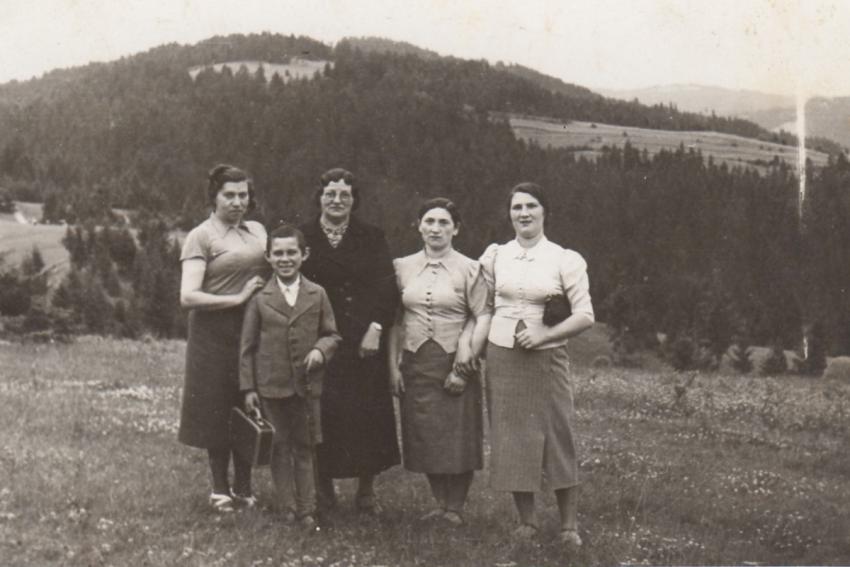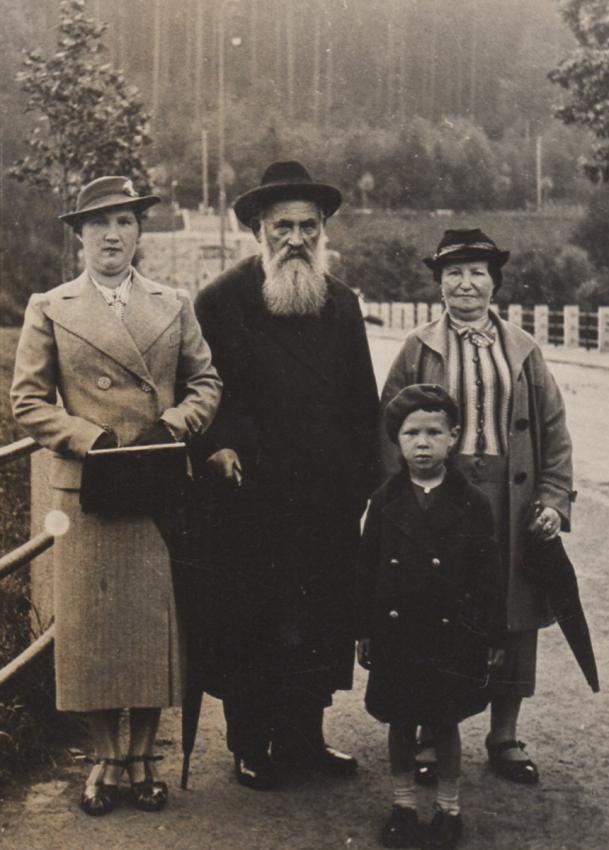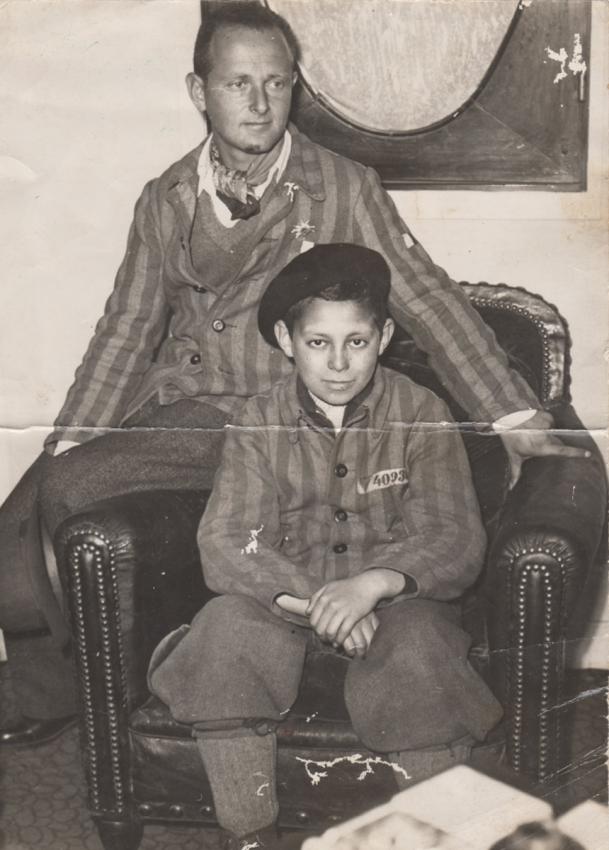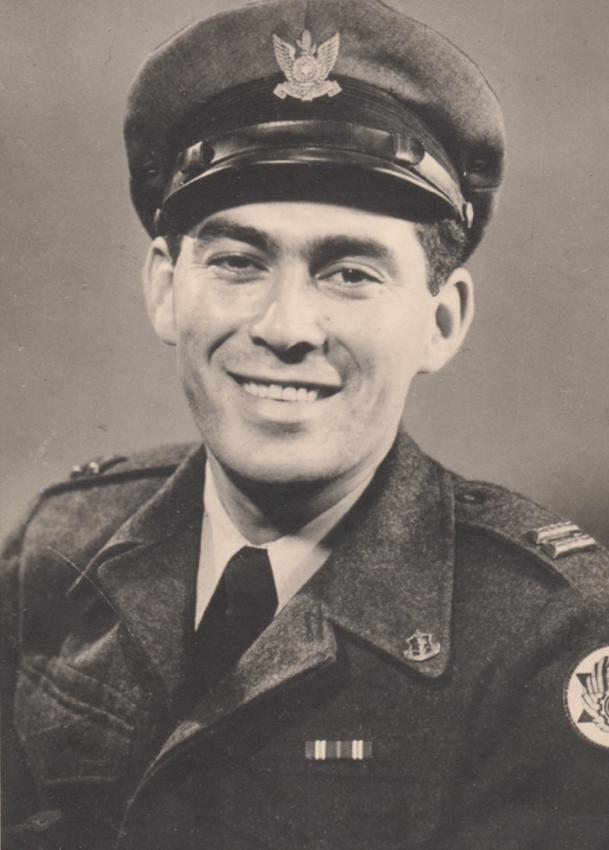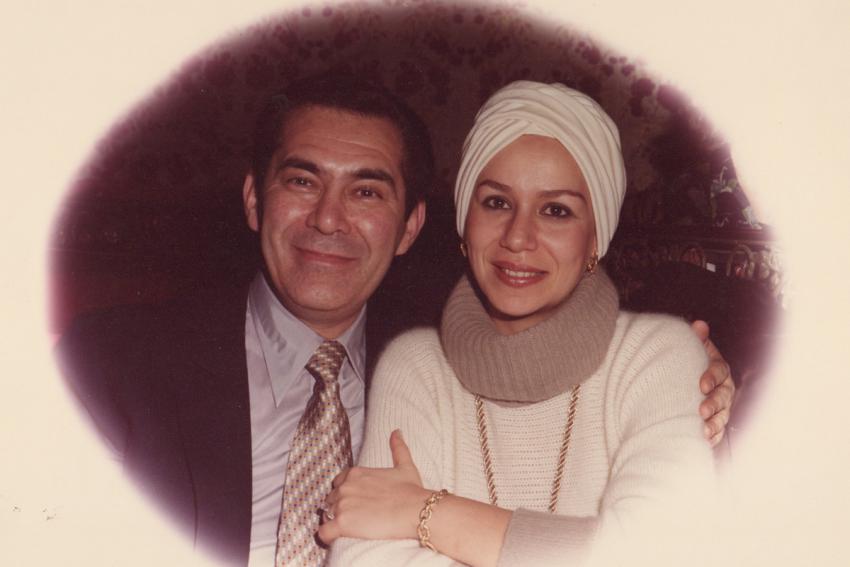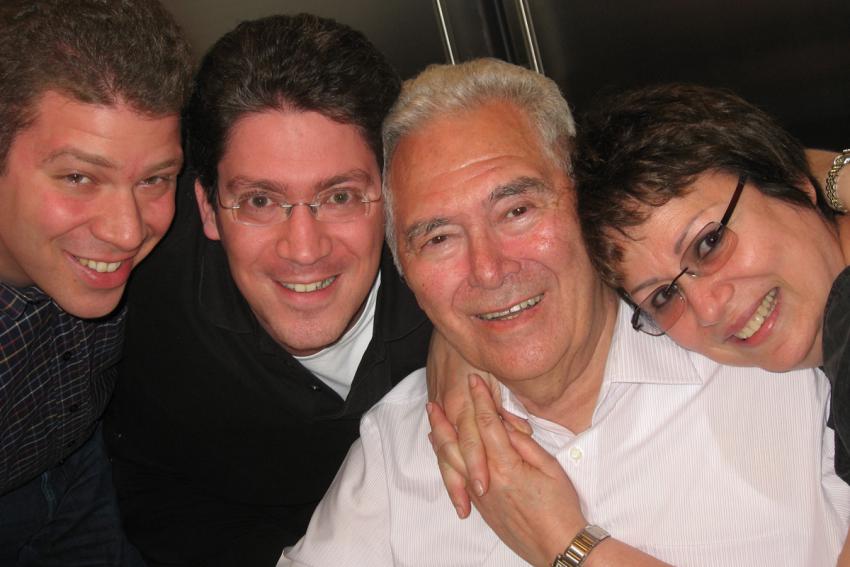Yehuda Schwarzbaum was born on 24 January 1930 in Krakow, Poland, to Akiva and Chaya Schwarzbaum (née Rosenzweig). Akiva’s family came from Wolbrom, Poland. The Schwarzbaum family lived at 30 Ul. Marszalkowska in Zawiercie, Poland (Upper Silesia). His parents owned a leatherware store.
Yehuda grew up in an orthodox Jewish home, attending Heder, a religious school that teaches the basics of Judaism, from a very young age. His two younger brothers, Menachem Mendl (b. c 1932) and Avraham (b. c 1935) were both murdered in the gas chambers of Auschwitz in 1943.
In 1938, Yehuda had a tonsillectomy and shortly thereafter travelled with his mother and a few other family members to Krynica, Poland to recuperate. A photograph of this trip survived the war.
On 4 September 1939 (some sources claim it was on 3 August), the German Army entered the city of Zawiercie. In June 1940, the Germans established the "open ghetto" in Zawiercie, and in the winter of 1941-1942, the Germans enclosed the ghetto with a barbed wire fence.
In August 1943, the Zawiercie ghetto was liquidated.
The Jewish population was ordered to assemble at the Umschlagplatz. There, an SS officer named Schulz started to shoot, and a bullet injured Yehuda’s father in the neck. The family decided to go into hiding, assuming that it was impossible to travel with such an injury (it transpired later that the wound was only skin-deep). They hid in an attic near their house, which was only accessible from the outside. Neighbors decided to join the Schwarzbaum family in hiding.
After three days, the water supply ran out. Yehuda, thirteen years-old at the time, went out with another boy to find some water. Upon their return, the group's clamor for water created a commotion, and they were heard and caught by an SS officer walking by.
On 26-27 August 1943, all the remaining Jews of Zawiercie were sent to Auschwitz, save several hundred who were permitted to stay behind to work at a German Luftwaffe factory, among them Yehuda and his parents. Willi Garbrecht, the SS officer in charge of the factory helped many Jews, and in 2011 he was posthumously recognized by Yad Vashem as “Righteous Among the Nations”.
Yehuda’s parents were told that their two younger children would also be brought to the factory the next day. However, the following night, Menachem Mendl (approximately 11 years old) and Avraham (approximately 8 years old), were deported to Auschwitz. This remained Yehuda’s most traumatic memory: seeing his two younger brothers crying desperately for their parents through the window of the factory, and being unable to help them.
In October 1943, the factory was shut down. On 18 October 1943, Yehuda and his parents were deported to Auschwitz-Birkenau, not in cattle cars but on a passenger train.
Yehuda remembered Dr. Mengele standing on the platform during the selection. He asked Yehuda how old he was and Yehuda replied “Eighteen,” even though he was only thirteen years old at the time. Mengele further asked if he had a profession. Improvising, Yehuda replied that he was an electrician. Yehuda never understood how he survived this selection, as children were routinely sent straight to the gas chambers. Throughout his life Yehuda assumed that Mengele must have been drunk at the time, as he smelled strongly of alcohol.
The next day, Yehuda was tattooed with his number: 157784. His father Akiva’s number was 157783. After arriving at Auschwitz-Birkenau, Yehuda never saw his mother again, as men and women were immediately separated in the camp.
On 13 November 1943, Yehuda’s father was transported to the sub-camp of Goleszow (Golleschau in German), where the work was very physically demanding.
In December 1943, Yehuda faced a big selection. Since he realized that he was unlikely to survive this time, he hid outside his barracks. Suddenly, he was confronted by an older SS officer pointing his gun at Yehuda, demanding to know what he was doing there. Yehuda begged the officer for mercy, appealing to his parental instincts. Miraculously, he let Yehuda go. After the selection, Yehuda was sent to D Lager, where he immediately realized that he had no chance of survival due to the severe living and working conditions.
In desperation, Yehuda went to the quarters of the Sonderkommando, asking for permission to hide in their barracks during the day and return to his own at night. They agreed, and it was Yehuda's belief that hiding there every day from January until October 1944 saved his life.
On 22 March 1944, Yehuda’s father Akiva returned to Auschwitz. He was emaciated, a Muselmann, and Yehuda barely recognized him. Yehuda often recalled how his father, although barely alive, tried to comfort his son with a smile on his face, telling him that this life is no more than a “corridor” leading to a better place. Akiva Schwarzbaum was murdered a few days later in the gas chambers.
On 26 October 1944, Yehuda was transported to the Stutthof concentration camp, where he arrived on 28 October (prisoner number 10071).
On 17 November 1944, Yehuda was transferred to the Hailfingen concentration camp (prisoner number 40930). There he met Eric Breuer, a Viennese Jew, who was 19 years his senior. Eric Breuer became a paternal figure and lifelong friend to Yehuda until his (Eric’s) death in 2004.
On 10 February 1945, Yehuda arrived in the Dautmergen concentration camp. In April 1945 the camp was liquidated and on 17 April, the death march towards Dachau began.
During the death march, Yehuda, Eric Breuer and three other Jews escaped while momentarily unsupervised by the SS.
Shortly thereafter, they were liberated by French troops. They were brought to the Hotel Lutetia in Paris, where they were given shelter and visited by Charles De Gaulle.
After liberation, Yehuda and Eric Breuer recuperated in France for four months, and then spent nine months in Belgium.
While in Belgium, Yehuda met his cousin Rivka Rosenzweig, who was active in the “Aliyah Bet” clandestine immigration movement. Rivka and her brother Sam Rosenzweig were the only other survivors from Yehuda’s family. She suggested that they go together to Eretz Israel (Mandatory Palestine), and in 1946, Yehuda immigrated to Eretz Israel by ship.
In Israel, Yehuda was one of four youths sent to Jerusalem to “Beit Midrash Mizrachi” to receive a formal school education.
Yehuda fought in the War of Independence in 1948. He trained as a meteorologist in the IDF and went to night school to get a high school diploma.
In 1956, Yehuda traveled to Europe with $900 in his pocket. He spent the next six years in Germany, initiating different ventures and businesses.
Over the course of the 1960s, Yehuda started partnerships in various companies, among them in the food service and clothing manufacturing industries. By the early 1970s, he had started various real-estate endeavors.
On 28 December 1971, Yehuda married Sara Horkin in Rehovot, Israel.
Their son Ron Akiva (named after Yehuda’s father) was born in Vienna on 10 January 1973.
Michael Menachem Mendl (named after Yehuda’s younger brother) was born on 13 June 1974.
In his free time, Yehuda’s biggest passion was studying Judaism. He started working on his Ph.D. at the Viennese Institute for Judaism in the 1990s, but was prevented by poor health from completing his doctorate.
After battling a long, protracted illness, Yehuda passed away on 3 October 2011.
Even though his childhood and youth were overshadowed by indescribable hate, intolerance, cruelty and loss, Yehuda’s joie de vivre, optimism, generosity and love for his fellow man were an inspiration to everyone around him.

